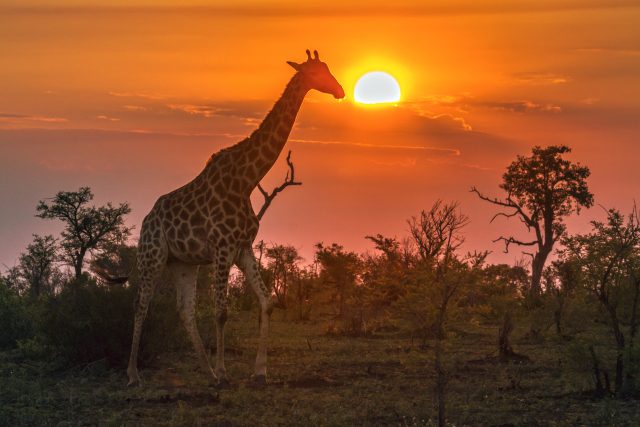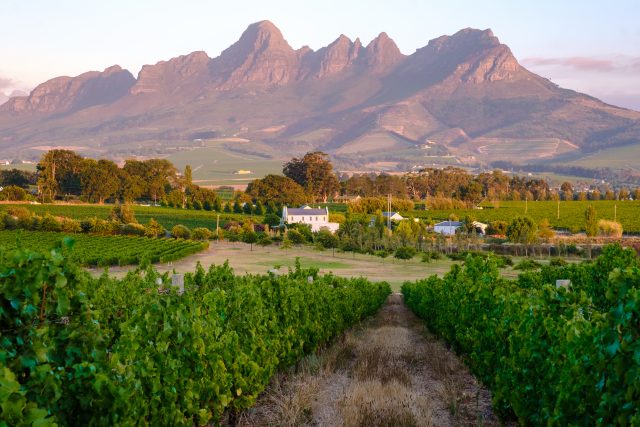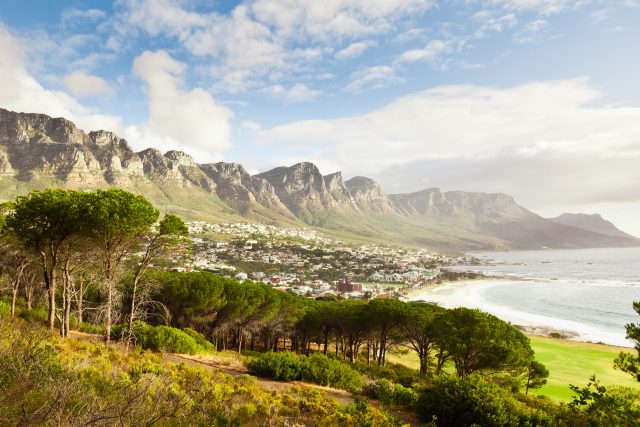This website uses cookies so that we can provide you with the best user experience possible. Cookie information is stored in your browser and performs functions such as recognising you when you return to our website and helping our team to understand which sections of the website you find most interesting and useful.
Tall order: South African winemakers rise above election noise
The South African wine industry has a few tricks up its sleeve to weather a maelstrom of political chaos this year, reports Sarah Neish.

On 29 May a general election is due to take place in South Africa, which will see a government frequently accused of corruption, scandal and mismanagement fighting to stay in power.
The ruling ANC (African National Congress) is pipped to lose its outright majority for the first since the party came into power in 1994, which is likely to trigger major change, whatever the outcome.
During its 30 year-tenure, the ANC has been widely criticised for its handling of public services. In particular, three years of electricity black-outs across the country, caused by a serious lack of investment, has caused untold problems for South Africa’s winemakers, which rely on energy to power their wineries and equipment.
At times, wine producers have been forced to shut off their power supply for certain hours according to a set schedule, which has impacted irrigation and contributed to South Africa seeing a 14.2% drop in yield for its 2023 harvest.
“The infrastructure has crumbled,” Siobhan Thompson, CEO, Wines of South Africa, tells the drinks business in an exclusive interview.
The upshot of the blackouts, says Thompson, is that they have forced residents, including wine producers, into “self-generation”, with solar energy becoming more widespread “for those who can afford it”.
However, just as frustrating for the country’s winemakers are the issues affecting the Port of Cape Town, which at times have slowed the pace of wine exports to a dribble.
According to Thompson, a lack of investment in the cranes required to lift large freight containers on board ships, among myriad other failings, has caused wine shipments to back up. Compounding this is an ongoing battle between the wine trade and the fruit industry for time slots and space on ships.
“The bottleneck started around Covid time, and I don’t think we’ve got out of that yet,” Thompson says.
Where once shipments would take around three or four weeks to reach the UK (the biggest market for South African wine) from Cape Town, today that lead time is up to around 10 weeks.
Such logistical issues, paired with the small 2023 harvest, resulted in a 17% drop in wine export volume last year.

Looking up
Despite the reduced volume of wine leaving South Africa’s shores last year, prices of the country’s wine have in fact shot up by 22% for bottled wine, and 20% for bulk.
The real reason for this, explains Thompson, is that fewer entry-level white wines were exported, while premium wines in higher price brackets saw an uptick. The needle is moving in the right direction, but producers will need to hold fast to their premiumisation strategy if they are to weather the political storm this year.
Thompson is keen to impart a message of longevity to winemakers, especially during the current political challenges.
“It’s not just about being profitable now,” she says. “It’s about being able to make enough money to invest in your vineyards and your people in order to continue your journey.”
People tend to assume that ‘good value’ means ‘cheap’, adds Thompson, when in fact “value for money could mean paying quite a large price for a bottle of wine.”
Case in point is South African producer Klein Constantia, which launched its Vin de Constance 2020 on French platform La Place de Bordeaux last September, at £564 per case of 12 (50cl), a 4% raise on last year’s price.
db’s Bordeaux correspondent Colin Hay called the wine “wonderfully pure, clean, bright and fresh”, with “impressive density, concentration and viscosity”.
Thompson insists that South Africa’s top wines are “still affordable and accessible compared with other wine-producing regions around the world”; something the nation’s producers will be looking to communicate at every turn throughout 2024.

Ones to watch in 2024
Thompson points towards Breederkloof as being a region to keep an eye on for fine South African wines. Home to “really talented, second or third-generation winemakers producing incredible old vine Chenin,” Breederkloof is a great example of what is not only possible but increasingly prevalent from the nation.
There’s also a revolution taking place in lighter South African reds such as Cinsault, Grenache, Gamay and Pinot Noir. The latter, particularly, is starting to break through to discerning international markets.
“More South African producers are specialising in Pinot, taking the time to understand it, and really learning how to work with it,” says Thompson, who adds that various exciting styles are starting to emerge, from “more Burgundian Pinots to beautifully light, fruity and fresh elaborations”.
A small production, premium-price approach to Pinot Noir means bottles will occupy a completely different shelf space in export markets to the likes of traditional South African red, Pinotage.
UK retailer Waitrose currently offers two expressions: Bosman Pinot Noir, £14.99, and Albert Road Pinot Noir, £9.99.
Having already snatched a share of Sauvignon Blanc sales from New Zealand during the latter’s shortage of the white grape in 2021, is history set to repeat itself? Faced with choosing between a cool-climate Pinot from South Africa or New Zealand, which way will consumers go?
“With Sauvignon Blanc, the intention was never to step in and take New Zealand’s spot,” Thompson tells db. “We wanted our wines to be complementary to New Zealand’s offer. It gave us an opportunity to showcase what South Africa has to offer, but I don’t think we’ve knocked them off their pedestal!”
That said, there is an air of quiet confidence from Thompson. Given the political whirlwind currently brewing, the nations’ winemakers will need to pull something special out of the bag this year. South African Pinot might just be it..
To read more about South African wine check out these db articles:
Does Gamay have a future in South Africa?
A sommelier ‘bootcamp’ is coming to Stellenbosch
The Cape ‘wonder plant’ sucking unparalleled levels of CO2 from vineyards
South Africa’s Spier Wine Farm joins Freixenet Copestick
Related news
Eminent Greek winery founder dies aged 82
Sherry Week celebrates gastronomic potential of historic wines
Spain 'needs to learn how to market our fine wines', producer claims

